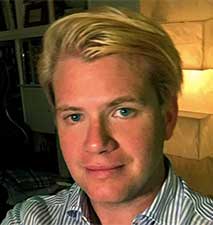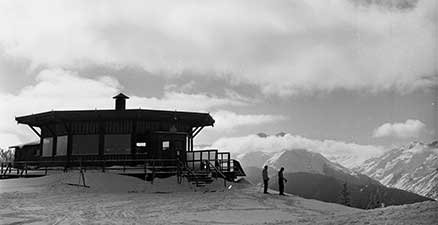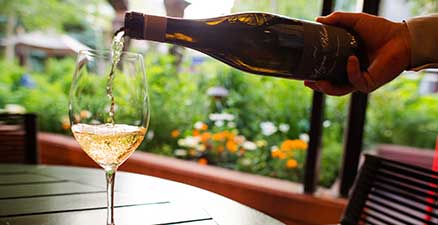Bauhaus 100 Explained: Aspen Events/Looking Back

In case you haven’t heard — or have heard, but didn’t quite understand — how the Bauhaus came to Aspen and why we are celebrating the 100th anniversary of the school, take a quick look at this video to learn all about this unique art style and the influence it has had in Aspen.

In a nutshell, when the Paepcke’s were turning Aspen from an abandoned silver town into a ski resort, they brought in a Bauhaus master to oversee everything and so today, Aspen remains one of the more intact manifestations of the short-lived German art schools.
Some Upcoming Events
The festivities have been going on all year long. Don’t miss these while you’re in town this summer:
A Total Work of Art
The Aspen Institute
This is an amazing collection of Bayer’s work that really focuses on how the Bauhaus informed his work and his creation of the Aspen Institute.Free and open to everyone
Bayer & Bauhaus
Aspen Historical SocietyThe Aspen Historical Society dug through their archives to display never before seen Bayer drawings, works and photos.
Where: Wheeler/Stallard Museum through April 25, 2020
Bauhaus Brew
Aspen Brewing CompanyIn collaboration with the Aspen Brewing Company, a delicious IPA made in honor of the German art school.
Walking Tours
Bauhaus 100 AspenCheck out the Bauhaus 100 Aspen website for architectural walking tours and as well as landscape design walking tours around Aspen.The Bauhaus Ball: Why Aspen Loves A Costume Party
“Tell me how you party and I’ll tell you who you are,” the Bauhaus’ default costume-master Oskar Schlemmer once quipped. His fantastical ballet costumes were the inspiration for the Bauhaus Ball, which was held at the Wheeler Opera House to the toast the Bauhaus Centennial and Aspen’s significant Bauhaus legacy.
And sure, it’s all history now, architectural footnotes and erudite asides, “Did you know Herbert Bayer built this after Kadinsky,” and so forth. But the Ball, and the hundreds of fantastical costumes that were donned proved something. It proved that Bauhaus, specifically Aspen Bauhaus, has a half-life. It is in the water, in the air, baked into the landscape, coded in the town DNA.
And sure, it’s all history now, architectural footnotes and erudite asides, “Did you know Herbert Bayer built this after Kadinsky,” and so forth. But the Ball, and the hundreds of fantastical costumes that were donned proved something. It proved that Bauhaus, specifically Aspen Bauhaus, has a half-life. It is in the water, in the air, baked into the landscape, coded in the town DNA.
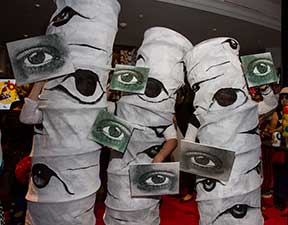
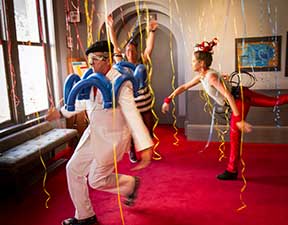
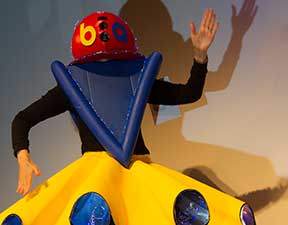
You see, there was an irreverence and counter-cultural imperative that went along with formal training at the German art school. They took their work very seriously, and they took their play seriously as well. Held to foster relationships between masters and students, parties also provided a creative outlet while upholding an unofficial Bauhaus idiom: “Play becomes party – party becomes work – work becomes play”. Sort of the original, “work hard, play-hard” but less douchy.
The Bauhaus was, and Aspen is, a world apart, an escape, a dreamscape, a fantasy. So it’s no wonder everyone feels so comfortable in costume.
The Bauhaus was, and Aspen is, a world apart, an escape, a dreamscape, a fantasy. So it’s no wonder everyone feels so comfortable in costume.
About The Author
